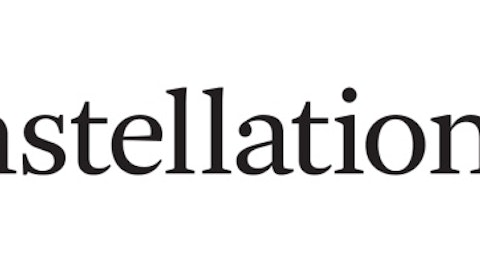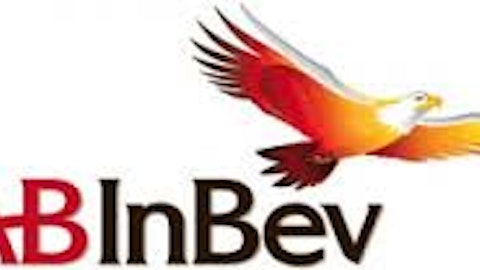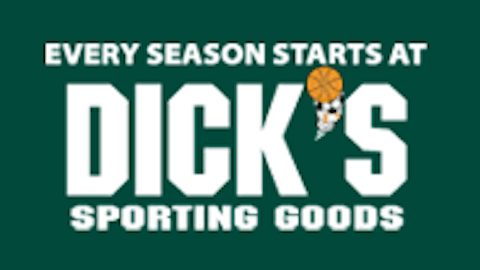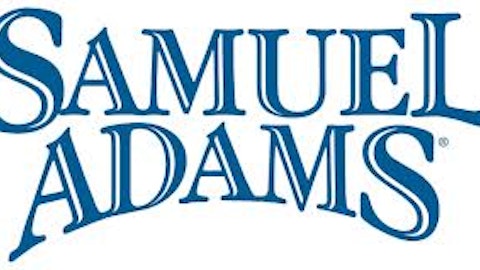Just as in the U.S., beer sales in Canada are relatively flat. Sales barely inched higher in the 12-month period ending March 31, according to the Canadian government, rising just 0.3% as trendier libations such as wine and spirits enjoy more heady growth, jumping 6% and 4%, respectively.
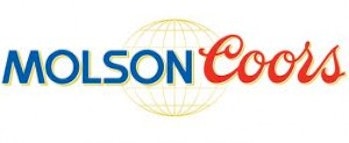
Sure, there are a few other things that immediately come to mind when discussing Canada — maple leaves, hockey, and that fashion sensation, the denim-on-denim “Canadian tuxedo” — but beer has always commanded significant mindshare, too. Foster’s may be “Australian for beer,” Guinness might be Ireland’s “meal in a bottle,” and Denmark regularly “calls for a Carlsberg,” but in Canada, drinkers have a rich history of brews to choose from, with Labatt’s, Molson, and Moosehead likely to figure most prominently.
Trying to tap into that market would be a difficult task for anyone, even for SABMiller plc (ADR) (OTCMKTS:SBMRY), the world’s second largest brewer, which is why it undoubtedly figured that by hooking up with Canada’s biggest operator, Molson Coors Brewing Company (NYSE:TAP), with 39% of the beer market, it would have an easier time of getting better distribution. Their MillerCoors joint venture was created in 2007 and mainly distributes beer in the U.S. and Puerto Rico, but it also allows Molson to market and distribute certain Miller brands in Canada.
However, like a Canadian clipper moving down from the north, the relationship is entering a frosty period after Miller notified Molson Coors Brewing Company (NYSE:TAP) it intended to dissolve the Canadian portion of the agreement, citing flagging sales. While MillerCoors had almost $7.8 billion in revenues in 2012, analysts say the Canadian portion represented by the agreement was under 2% of Miller’s annual sales, and they most likely believe Molson Coors Brewing Company (NYSE:TAP) isn’t doing enough to promote its brands.
Although beer is still the most popular adult beverage in the country, the industry’s market share is in decline, falling from a 50% share in 2002 down to 44% last year. At the same time, wine has jumped from 24% to 31% of the market over the same period, and whiskey slipped from 26% to 25%.
In the U.S., beer sales rose just 1% last year, helped along only because of the rise of craft brewers. Yet even here, industry frontman Boston Beer Co Inc (NYSE:SAM) has seen sales flag as the segment becomes extremely fragmented, and distillers Brown-Forman Corporation (NYSE:BF.B) and BEAM Inc (NYSE:BEAM) helped bolster the “browns,” while vintners like Constellation Brands, Inc. (NYSE:STZ) witness similar growth spurts in wine.
Molson Coors Brewing Company (NYSE:TAP) is fighting back and recently won an injunction against Miller that bars it from terminating the agreement. With the court case scheduled for December of this year, the risk for Miller is that the acrimony becomes so bad that the U.S.-based partnership ultimately falls apart too.
Molson Coors Brewing Company (NYSE:TAP)’s Coors Light commands a 14% market share in Canada, and it says it’s the country’s top-selling beer. Its Molson Coors Brewing Company (NYSE:TAP) Canadian is the third biggest seller, with an 8% share. Yet Anheuser-Busch InBev NV (ADR) (NYSE:BUD) claims that its Labatt Breweries, which it acquired in 1995, is the top brewery in the country. And Euromonitor International says that between Labatt and Molson, they controlled 79% of the beer market up north in 2011.
Here at home, Bud Light remains the top-selling beer, and Coors Light has retained the No. 2 position over Budweiser. Without the ability to break the lock those brands have on the U.S. market, and should their partnership fall apart completely, Miller may end up crying in its beer that its sales will decline all across North America.
The article Beer Battle Brewing in the Great White North originally appeared on Fool.com is written by Rich Duprey.
Fool contributor Rich Duprey has no position in any stocks mentioned. The Motley Fool recommends Beam, Boston Beer, and Molson Coors Brewing (NYSE:TAP) and owns shares of Boston Beer.
Copyright © 1995 – 2013 The Motley Fool, LLC. All rights reserved. The Motley Fool has a disclosure policy.
